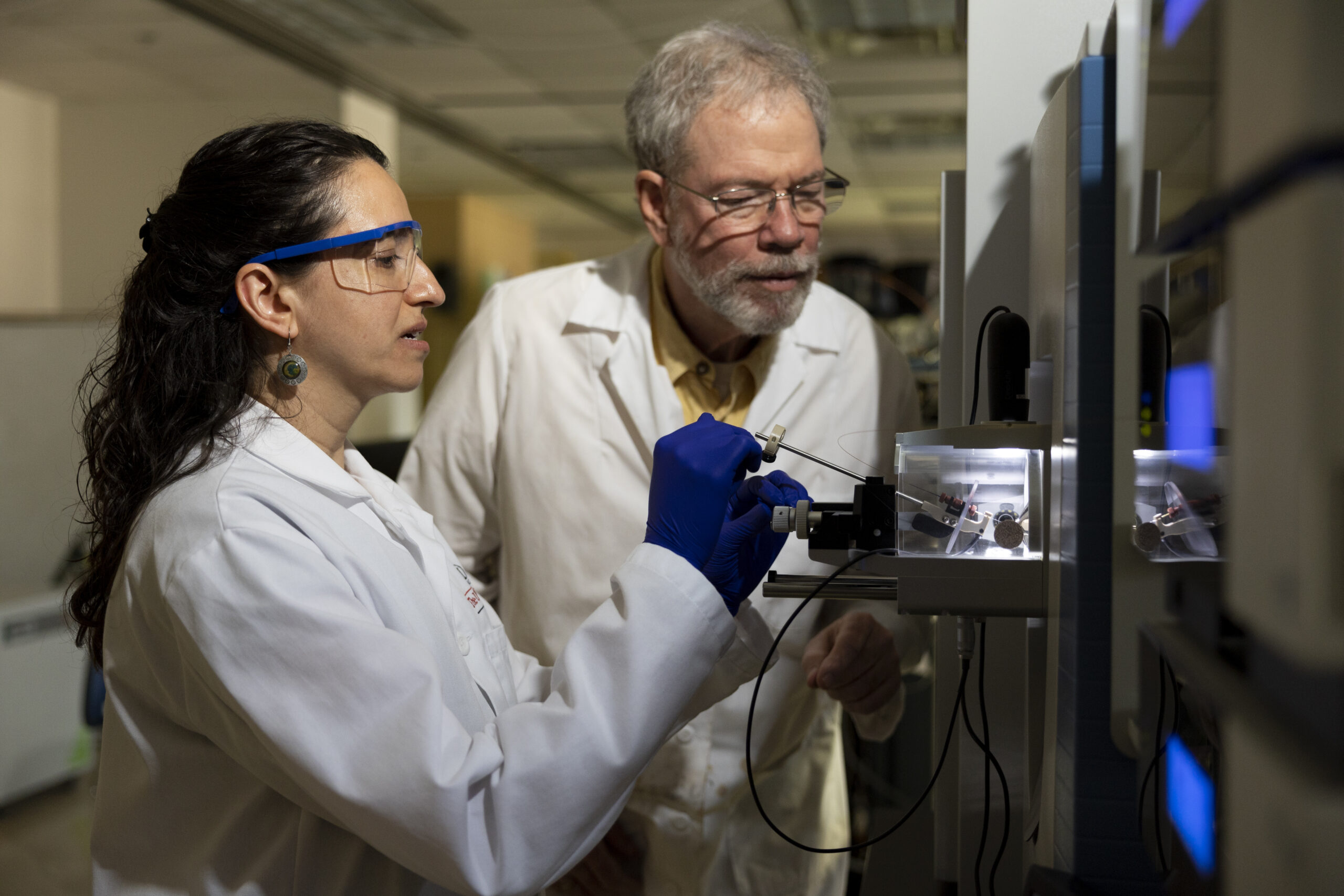A graduate degree from the University of Georgia (UGA) College of Engineering lets you commit to what inspires you. Many factors make this possible but nothing matters as much as the people teaching you.
The college knows this — hence why it’s launched an ambitious initiative to recruit 70 faculty members with expertise in applying data science and artificial intelligence to some of society’s most urgent challenges. They work across departments, focusing on the fusion of data science and AI in cross-cutting areas such as infectious diseases, integrative precision agriculture, computational social sciences, ethics, cybersecurity, virtual reality in teaching and learning, resilient communities, and the environment.
“This hiring initiative builds on the expertise of our existing faculty and leverages our strength as a comprehensive research institution with a land- and sea-grant mission of service,” says S. Jack Hu, Provost. “It will give students new learning opportunities while sparking transformative discoveries.”
The new faculty will be recruited in 10 interdisciplinary clusters focusing on broad themes. For example, under Environmental Artificial Intelligence, six positions have been filled for faculty who can move UGA to the forefront of AI-driven research on ecosystem resiliency. There are also current faculty who have taken on new research projects with AI involvement.
With the university since 2008, Professor Kyle Johnsen specialises in Virtual Reality and Multimodal 3D User Interfaces. He leads the Georgia Informatics Institutes and is director of the Virtual Experiences Laboratory at UGA. One of his latest research is related to AI. “Georgia AI in Manufacturing is a new project that, for my part, will design educational modules, including those featuring augmented reality and robotics, to support workforce development in an age of increasingly autonomous facilities,” he says.
Johnsen has been an instructor since Fall 2008 and what keeps him going is the “many inspirational technologies” that have been introduced since. “I’m a part of this field, yet I’m constantly amazed by new technologies that are introduced every year, especially those that have a chance at mass adoption,” he says.
To ensure his students learn the skills they need, Johnsen’s lab and classes focus on deepening computing skills. He gets students to see beyond just “programming” but also to appreciate how a computer can be leveraged to solve problems efficiently. “The programmer knows how to follow a series of steps to go from point A to point B, but the engineer must chart the course. This is a painful thing to learn to do, as it requires moving slowly so you can test your assumptions and spot issues/errors as they happen,” he says.
“I’m constantly demonstrating this in my courses and giving hard enough problems that require it. I also create opportunities for undergraduate research whenever I can, and support almost all students who want to do it. These experiences force students to solve real, hard problems, provide differentiation for a student’s resume, and provide a leg-up, should the student want to go to graduate school.”

The Institute for Integrative Precision Agriculture is UGA’s vision and brand for digital agriculture. Source: University of Georgia
The use of AI and data science is not limited to robotics. The Institute for Integrative Precision Agriculture (IPA) hones in on research at the confluence of agricultural sciences, engineering and informatics. Using new technologies, big data, analytics and models, IPA works to improve the efficiency of the agricultural value chain through better decision-making and increasingly site-specific operations.
There are two main branches of research for precision agriculture at UGA. Fundamental research features Robotics and Automation, AI and Modelling, Computer Vision and Imaging, as well as Sensors and Wireless Communication. Use-inspired research is about the practical application of this basic research to solve today’s and future challenges in production agriculture. It includes Precision Irrigation, Precision Poultry/Livestock Management, Site-Specific Crop Management, Variable Rate (VR) Technology and Machinery Systems, Precision Forestry and Controlled Environment Agriculture.
What you’ll learn from the experts in this area will make you stand out — and in more fields than a regular engineer. This is because UGA educates engineers in a liberal arts environment. For example, the graduate certificate in Agricultural Data Science helps produce graduates who can close the gap between the generation, analysis, and interpretation of big data in the agricultural sector. What this means is that you’ll have the know-how to improve communication between data generators (agricultural and biological scientists) and data specialists (computer scientists and statisticians).

Biomedical engineering jobs are projected to grow by 5% over the next 10 years. Source: University of Georgia
Biomedical engineering is another rapidly growing sector. Jobs in the field are projected to grow by 5% over the next 10 years, 4% higher than the projections for all engineering jobs. Such prospects go hand in hand with the kind of impact you can make in this field. For instance, assistant professor and member of UGA’s Regenerative Bioscience Centre Cheryl Gomillion’s research is on understanding how breast cancer metastases. She examines engineering composite tissue systems for tissue replacements and pre-clinical tissue modelling.
The Gomillion lab is affiliated with CMaT, a National Science Foundation engineering research centre for cell manufacturing technologies. While it needs not be said why this educator’s research is so vital, her methods hold broader implications for other areas, such as regenerative medicine and the field of cell therapies. Dedicated to her work, Gomillion also ensures that she trains the next generation of biomedical engineers.
In fact, the assistant professor received a National Science Foundation grant to study the success behind diversity in graduate engineering research labs. She intends to explore research microcultures where underrepresented students do well, taking into account the hows and whys. This will be done with support from UGA’s Engineering Education Transformation Institute and other mentors.
In the future, Gomillion intends to help more minorities participate in graduate engineering programmes. Her success stories in this area are the most rewarding part of her role. “I tell my students to stay alert,” Gomillion says. “Stay open to the opportunities that come your way. You never know who you’re going to have a conversation with.”
According to the visionary, STEM departments and scientists need to be putting their own culture under the microscope, not just cell cultures. Especially with biomedical engineering, artificial intelligence, and precision agriculture, UGA has emphasised how important graduate research is for the future.
To apply for one of the University of Georgia’s graduate engineering degrees, click here.
Follow the University of Georgia’s College of Engineering on Facebook and X











